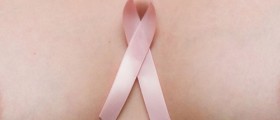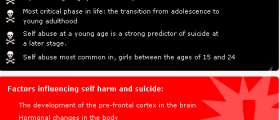Puberty is a period in the life of a child characterized by several physical changes in the child's body. It can be defined as a transitional period between childhood and adulthood. During this period, a child becomes an adult and sexually mature person.
James Mourilyan Tanner recognized a few stages, which every child goes through. These stages, commonly referred to as Tanner stages, usually occur at about the same time in a teenager's life but is not a worrying thing if any of the stages arrive either earlier or later than typical.
Puberty Stages
The first stage is rather preparatory for puberty to come. This pre-puberty stage affects girls of eight to 10 years of age. Girls start growing up to almost three inches a year and experience swelling of the nipples. Inner reproductive organs start to develop too, so the ovaries get bigger. As opposed to girls, boys experience changes a bit later on, at about nine years of age to 11. Boys grow taller with insignificant changes in the genital organs.

Stage two is marked by the appearance of pubic hairs. At about 11, girls have some pubic hairs around the lips and labia of the vagina. The clitoris and the uterus enlarge, while the area around the nipples swells a bit. Boys' testicles get bigger, with the skin around them becoming a bit redder and thinner than before, and a few pubic hairs appear around the penis.
At the third stage, girls reach the peak of their growth, they grow taller by about 3.2 inches a year. The breasts are formed, which also means buying the first bra. Pubic hairs thicken and become curly, and at the same time, hairs grow under the arms. The first problems with spots occur at this stage, happening at about 12 with girls and at about 13 with boys. At this stage, boys get muscles and a slight swelling of the breasts. The penis becomes bigger, and boys start to have "wet dreams" during their sleep. Their voices also change, and they grow more than before.
At the fourth stage, at about 13, girls experience their first menstrual periods. Breasts are formed with swollen areas around the nipples, and the outer parts of the genitals are fully covered in hair. Boys of 14 years of age grow hairs under their arms, and their voices completely change. Their penises continue to grow as well.
The final stage means that girls' breasts are fully formed without further swelling. Hairs spread to the thighs, and the genital organs become mature. At about 16, girls are physically developed as adults. Boys become adults and physically mature at about 18. Hairs appear on their faces, pubic hairs reach their thighs, and genitals are fully formed.
- In this preregistered study, we investigated the associations among pubertal timing, internalizing symptoms, and reward sensitivity in a large, population-based sample of 11,224 9–10 year-olds from the ABCD Study®.
- Using split-half analysis, we tested for within-sample replications of hypothesized effects across two age- and sex-matched subsets of the sample. Early pubertal timing was associated with higher internalizing symptoms in female and male participants across samples, with 9–10 year-olds in the mid-pubertal stage at the highest risk for internalizing symptoms.
- Additionally, early pubertal timing was robustly associated with greater self-reported reward sensitivity in both female and male participants. We observed inconsistent evidence for a moderating role of reward sensitivity across measurement domains (self-report, behavioral, and fMRI data), several of which differed by sex, but none of these interactions replicated across samples.
Skin Problems During Puberty
During puberty, hormonal changes influence skin quality. In both boys and girls testosterone is responsible for oily skin which is prone to various acne problems.
Blackheads and whiteheads appear as a consequence of certain bacterial infections a teenager's skin is not immune to. Apocrine glands produce more sweat, and teenagers experience intense body odors. Periods start at about 12 or 13 for girls, which is when they become easily irritated, with backaches and abdominal pains. As a normal part of puberty, emotional changes make teenagers rebellious, apprehensive, and moody.
















-And-Children-16-Warning-Signs-And-Symptoms_f_280x120.jpg)
Your thoughts on this
Loading...